|
First things first—let’s make sure we’re all on the same page about the Oxford comma.
So, what is it? According to Webster’s, the Oxford comma, sometimes called the serial comma or the Harvard comma, is a comma used to separate the second-to-last item in a list from a final item introduced by the conjunction and or or.
Which American style guides support the Oxford comma?
Because AP style is used by journalists, there’s a real space-saving mentality. So, in an effort to pack in more news per square inch, the Associated Press and journalistic style guidelines advise against using the Oxford comma. To be very clear, here at Wildling, we’re huge supporters of the Oxford comma. It’s true, though, we also love concision, so AP’s reasoning isn’t totally bonkers to us. However, their reasoning falls apart when concision hampers clarity. For instance:
See? No Oxford comma = chaos. CHAOS.
Still not convinced? You may concede that there are times when the lack of an Oxford comma could lead to ambiguity, but the frequency of misinterpretation is just not high enough to worry about the little guy. Well, I’d argue that the clarity an Oxford comma provides is essential—even lucrative, according to a judge. Hear me out: Three drivers sued Oakhurst Dairy for four years’ worth of overtime pay that they said they had been denied. Maine law requires time-and-a-half pay for each hour worked after forty hours, but the following were listed as exceptions to that rule: The canning, processing, preserving, freezing, drying, marketing, storing, packing for shipment or distribution of: Agricultural produce; Meat and fish products; and Perishable foods Without the Oxford comma, the line “packing for shipment or distribution,” could be referring to packing and shipping as a single act or as two separate tasks. The drivers argued that the line reads as a single act, and since they didn’t actually do any packing, they shouldn’t have been exempt from overtime pay. In the end, Oakhurst Dairy agreed to pay $5 million to the workers! Need I say more? by Grace Ball
0 Comments
Christina Kann 00:00
Welcome to How Do I Book? with Wildling Press. We like to chat about book writing, book publishing, book marketing, and, of course, book reading. We're trying to help new and experienced authors develop their craft, widen their perspectives, and learn to get a little wild every once in a while. I'm Christina, and I'm really excited because joining us today on the show is one of my favorite authors of all time, ES Christison, author of The Blameless series, and a person who I like a lot. Hey, Liz, thank you so much for joining us. ES Christison 01:01 Hey, Christina. I'm super excited to be here today.
Follow Christison online:
Christina Kann 01:05
For starters, what are your pronouns? ES Christison 01:09 She and her. Christina Kann 01:11 Thank you so much. Tell us a little bit about The Blameless and your other work. ES Christison 01:18 The Blameless is about a 13-year-old princess named Briana. She lives a safe and happy life in her kingdom, until one night, her kingdom is attacked, her city is overthrown, her family is killed, and she's being hunted. She's on the run. She gets rescued by a group of three mysterious magical people who take her under their wing. They teach her how to use her own magic. It's about her learning how to use her own magical gifts and how she recovers from this devastating loss she's experienced. Christina Kann 01:56 And let me tell you, listeners: I have been working with this book for a long time, I helped publish it twice -- the first edition and then the second edition. I've read it probably probably going on 10 times now. And I'm not sick of it yet. I think that's incredible. I don't think I've read a book this much besides the first couple of Harry Potter books. ES Christison 02:19 That's very flattering. Thank you, Christina. Sometimes I shudder to think how The Blameless would have turned out without Christina. She has elevated this book and prodded my brain and helped me so much. You deserve a huge amount of thanks for how it turned out. Christina Kann 02:37 Oh, my God, thank you. It's just so fun to work on a book that you love so much. So what inspired you to write this story about Brie and her Blameless powers? ES Christison 02:53 I am actually not a writer by trade. I didn't go to school for writing. I'm a nurse, and I'm a busy person. I've got a large family, so it's not like I didn't have anything to do with my time. But one night, I had this dream, actually. It sounds a little cliche, but I had this dream, and I woke up in the middle of the night. It was about this girl whose family had been killed, and she was in hiding, and someone came and rescued her. I woke up at that point. It was basically the first seven pages of my story, and I couldn't get back to sleep. I normally don't dream in such a detailed way. I just couldn't get it out of my head. I told my husband about it the next morning, and I said it would just make an amazing book. And he said, "Well, sell the idea to Disney and make a movie out of it." He just laughed about that. Then I continued on with my busy life. But the dream didn't leave me. It just stayed with me for months and months and months. I couldn't get this girl out of my head. I wanted to know what happened to her. So then I just decided after about six months that I was going to try to write the story. And since I've been writing, I have fallen in love with it more. I'm very invested in this book and invested in getting this series completed. Christina Kann 04:17 Tell us about the sequel. I happen to know that there's a sequel in the works. ES Christison 04:21 Yes, my sequel is called The Tarnished, which is coming out in November 2022. It's Brie's continued journey, and her goal now is to basically avenge her family and take back her kingdom. We're going to read more of that journey in The Tarnished. Christina Kann 04:40 Yes, I'm so excited. I've read it. It's amazing. Liz, you mentioned a couple of minutes ago that you're a nurse; you have a large family, many children. You got other stuff going on in your life. We're here to talk about "butt in chair"; that's the name of this episode, which is a bit of a PG-rated version of Stephen King's quote. I'll adapt it for our audience. Stephen King has this quote that the the first step to writing is "butt in chair." I think a lot of writers can relate to this. It's so hard to just sit down and get writing. You've managed it, though, with all that you have going on in your life. So I want to talk a little bit today about how you make it happen. ES Christison 05:28 Sure. The way that I make it happen is, first of all, I've always been lucky to be a night owl. My most productive hours for thinking and doing things is typically in the evening. A lot of that writing has happened in the evenings after work and after my kids are in bed, at least the youngest ones. That's where I spend most of my writing time. However, I also have made it a motto of mine that I'm going to write a little something every day. It has actually happened many times -- or a few times, in any case -- that I've sat down, I've opened up my book, and I've written about a sentence. I've looked at that paragraph and thought, "Okay, I'm done for tonight." So it's not like I have to do huge amounts. My most productive times for writing are probably Saturday mornings when the house is waking up. I sometimes will get up early and work on Saturday mornings. I just have been devoted to being consistent. I listened to a podcast about how to write a book. I think all of us can relate to this: when we open up our story, we start reading what we wrote, and we immediately want to start editing it because we want to tweak it, it doesn't sound quite right. I forced myself to just continue; I just move forward, and I don't go back and reread it and re-tweak it. That's for the second draft. So the first draft is very much a skeleton. If I'm writing along, and I know that I need to have some witty dialogue but it's not coming to me in the moment, then I write in parentheses, (tell a story) or (add dialogue). And then I keep going. Or if I can't think of a character name, I'll just put it in parenthesis, you know, (name the character). And then I just keep going. That first draft is really the skeleton of my book, and then I go back through on the second draft, and I add the meat. Christina Kann 07:34 A couple episodes back, we talked about writing drunk, editing sober. No alcohol required. It's more about the mindset of just being able to get your first draft down, because that's the hardest part. It's so much easier to fix what's there than it is to produce something from nothing. ES Christison 07:53 If I'm in the middle of a thing, I'm writing and I'm really passionate about it, then I also occasionally have been known to have my laptop open on the counter. And if I'm cooking dinner, and it's taking a while and it's got to simmer for a while, then I'll click away on the laptop a little bit as I'm cooking. I do squeeze in as many moments as I can, and I really try my hardest to be consistent. Christina Kann 08:16 I do a lot of reading while I'm cooking, while stuff is simmering. My husband comes home from work, and I'm just leaning against the counter with a book. So, Liz, it's a weekday night, maybe a Saturday morning, and it's time to write. What's your writing routine? Do you do anything to get ready? Do you like to have anything with you? ES Christison 08:33 I like to have coffee or water, something to drink. Other than that, I try my hardest to be in a quiet environment. Sometimes in the evenings when I'm writing, I'll just sit in the living room with my husband, and he'll have the TV on, so there's a little bit of a distraction, and I am not as productive then. My most productive times are when I'm alone in my room or an office space. If I'm alone and I've got a keyboard and I've got something to drink, I just go. I don't listen to music. I don't really do anything else. I just type. Christina Kann 09:05 Laser-focused. I love that. You kind of alluded to this: What's your ideal writing environment? You mentioned you write in your room. I guess maybe the living room with a TV on maybe is not your ideal writing environment. What's the ideal? ES Christison 09:22 Actually sometimes not even in my room is ideal, though, because I have children who often will knock on the door and want to come in. Sometimes I've actually gone to my father's house when he's been gone, and I have sat down and just used his place as a quiet space. Christina Kann 09:37 Nice. That's awesome. ES Christison 09:38 Sometimes I have gone to a coffee shop when I have a chapter I really need to finish or an edit I need to finish, and I've got to get it done. Then I will leave my house and try to focus on that. But just a quiet space for me, just an uninterrupted, quiet space. Christina Kann 09:56 I feel like every time I go to work at a coffee shop, I go with Grace and/or Mary-Peyton, and we end up doing so much more chatting than working, it always backfires. Maybe I should go by myself one day. ES Christison 10:09 There was actually even one time when I was in my car, and I pulled up my laptop, and I had to finish the scene. I just clicked away there in my car, you know, and finished a really important chapter. Christina Kann 10:24 People podcast from their cars. Cars are safe spaces. ES Christison 10:27 They are, they're quiet spaces. When I am alone, my writing speed is probably at least four times as quick as when I am sitting with distractions all around me. But I still get work done that way. I try to focus some of that time with things like maintaining an author presence on social media. Christina Kann 10:48 That's a great thing to do when you've got the TV on. ES Christison 10:51 Posting and marketing and emails and things like that. Christina Kann 10:54 My husband's not a big reader. I'm a big reader. Obviously, I spend a lot of time editing and writing. So my husband knows that if I'm reading or writing in the living room, he can only watch his anime, because it's in Japanese, so it doesn't distract me the way English language does. ES Christison 11:12 That is priceless. I love that. Christina Kann 11:16 What motivates you to write when you're not really feeling it? When the creative juices aren't flowing? When you've had a long, hard week, but you gotta get in that little bit every day? What what do you do to motivate yourself? ES Christison 11:26 First of all, my kids are a huge motivating factor. I feel like I'm kind of doing this for them. That really is the reason I wrote the story, in one way -- to give it to them. They ended up sharing it with their friends. It has spread into something actually a lot bigger than I originally expected it to be, really, honestly. But so they have been a huge motivating factor for me. Also, now that The Blameless has been out in the world for a long time, I have a lot of readers who, every time I see them, they ask me when the next book is coming out. My fans are motivators. I don't want to disappoint my fans. I want to give them this next book in the series. Christina Kann 12:09 It's really important for authors to take their platform seriously. You can't can't start a story for people and then never finish, George RR Martin! I've given up waiting for his next book. Do you ever get writer's block? ES Christison 12:26 I do sometimes. It's more like Where am I going to go next? And needing that motivation to use up my mental juices or capacity to try to figure out what it is. Sometimes there's a scene or a moment that I'm struggling with. Those are moments where I will put it down, and I will walk away from it. And I will come back in maybe a week. If I need to, I will just put it down for a minute and focus on some other aspects of being a writer, and then I'll come back to it. In that time when I am not writing, I am mulling over all the possibilities of things, different ways I can take my plot. Christina Kann 13:08 Yeah, absolutely. I find that when I'm trying to figure out next steps in a story or how to approach a developmental edit with an author, the best ideas always come to me when I'm driving. You're not expecting it; you gotta stop sometimes and let the answer come to you. I have this long series of voice memos -- because you can't write anything down, you're driving! -- a long series of voice memos on my phone that are like, "Wait, I figured it out. What if, in the third act, you learn that they were brothers all along?" ES Christison 13:38 Yeah, that's incredible. One more thing I do that helps with my writer's block: I have three boys. I call them boys, but they're men. They're in their 20s. Okay. But I have three sons who are into DnD, and they're super creative. Sometimes my husband and I will just go sit down and hash out something. Sometimes, I'll ask my sons' opinions on something and get a little bit of feedback. That's been a lot of fun too, that they have helped me get through plot. Christina Kann 14:07 DnD is a really wild, different kind of storytelling. It is so immersive, and you have to think on your feet and be so confident of every choice, because there's no going back. I'm sure that their storytelling skills are really refined because of playing Dungeons and Dragons. ES Christison 14:25 Absolutely. I mean, sometimes they've said to me, "Hey, we're gonna play DnD over Christmas break, or over the holidays," and then the days are ticking by, and I'm like, "When are you playing DnD?" "Mom, we're creating our backstories!" So yeah, it takes days. It's involved. Christina Kann 14:43 It's a very involved process. Is there anything that discourages you when you're writing or when you're percolating? ES Christison 14:44 I do put a lot of pressure on myself that it needs to be done quickly. So as far as being discouraged, I sometimes feel like I don't have enough time, or as much time as I feel as necessary to dedicate to it to get it completed. My lack of time is sometimes overwhelming, because I am such a busy person. Christina Kann 15:20 How do you combat those moments? ES Christison 15:23 I have to be realistic with myself, and I have to think I can only do what I can do. I can only do so much, and that's got to be enough. That's enough. If my readers like my story, then they'll be patient and wait on it. I have to kind of talk myself off the cliff sometimes. "Don't put this unnatural pressure on yourself. Just do what you can do, and do it as well as you can do it." Christina Kann 15:50 You gotta keep it fun! If it turns into really hard work that you're not looking forward to -- Oof. ES Christison 15:58 Yeah. I was not a writer before. I was a nurse. I don't know if you know about nursing documentation, but it is cut and dried, and simple and short, and abbreviations, and very minimalistic. To start writing in a creative way is a huge learning curve for me, but I have really learned to love it. I do enjoy it. It's not so much a burden for me when I sit down and write it. You're exactly right. If it becomes heavy, then why do it? You know, you gotta love what you're doing. Christina Kann 16:33 I think most writers can probably relate to "I love this craft. And yet, I also dread spending time on it. It makes me so anxious." It's a balance, just like anything else in your life that you care about. ES Christison 16:48 Also, there's your own self doubt that the work is good enough. I personally have huge amount of imposter syndrome. Sometimes I'm like, "This story isn't good enough. Nobody's gonna like it. The plot's terrible." You know? Sometimes those doubts can come in too. Christina Kann 17:12 I hope that gets a little bit better every day. Liz, we've been on this journey together. We both were working on this book before many people had read it, before it was out in the world. Both of us were like, "I think this is good! Yeah, I think this is pretty good." But you don't really know for sure until people you don't know start approaching you randomly to talk about it. So every time a new person is like, "I just discovered The Nlameless and I love it!" I'm like, "Really? Oh, my gosh, that's so exciting." ES Christison 17:44 I know. Every time I hear that, it still blows my mind. Just today, I got a message from a mother who said, "I bought this book for my 13-year-old son, and he's read it twice this week and loves it and can't wait for the sequel!" I was just like, "How did you find out about it?" "Oh, I saw it on on Instagram." Christina Kann 18:02 Shoutout to everyone who's posting about it on Instagram. ES Christison 18:05 Yeah, thank you. I feel like I need to say that. Thanks to every single person who has opened their mouth and spread the word and shared things on social media. Thank you. Christina Kann 18:15 Just because we have a little bit of extra time here at the end, I have a couple fun questions. Are you a pantser or a plotter? Do you fly by the seat of your pants, or do you plot your story out scene by scene before you get started? ES Christison 18:29 I am absolutely a pantser. For example, with The Tarnished, I had about six to eight things that I knew had to happen in the book. And I kind of knew chronologically how they would occur. But that's about all I knew. When I sit down at my keyboard, that is really when this story flows for me. I know everyone is different. I have tried my hardest to do a teeny bit more of an outline on the third book, but for the most part, it's coming to me as I type. I'm fortunate that it happens that way. Christina Kann 19:07 Do you ever find yourself stopping and being like "Wait, I need to figure out where the trajectory of the story is going"? Or is it usually just a "what happens next?" kind of inquiry? ES Christison 19:19 I haven't typed myself into or written myself into a spot I can't get out of. I kind of know where it's going, and normally I just think, "What's the next phase?" Christina Kann 19:31 I meant to ask earlier -- but I feel like you kind of addressed this. The question I have written down here is How do you balance writing time with family time? But it seems like you also manage to incorporate the two by writing this book that your kids can enjoy and including your super cool DnD sons in on the storytelling. I feel like that maybe sounded sarcastic, but it's not. I also play DnD. ES Christison 19:54 It is super important that it can't take over. My writing can't be my priority. I have a lot that needs to go on. I work full time as a nurse, and I have seven children. They range in age from 12 to 25, so it's not like they're babies, they're all fairly self sufficient, but I'm still extremely busy. I'm still very much needed. If I know I have a deadline, for example, then I make sure I spend time with my kids first. We do something first: we maybe go shopping, or we go out to dinner, or we spend a little bit of family time together first, and then I'm like, "Okay, guys, Mom's got to get this done. I'm going to be really busy for the for this weekend. So we can plan other things. We can get you together with your friends. You can have a friend over if you want." And on vacations and things like that, of course, I don't take my book stuff with me. 100% of my focus is on what we're doing in that moment. Christina Kann 20:56 I feel like I always take work stuff on vacation, and then I ignore it the whole time. And I'm like, "Why did I bring this?" ES Christison 21:03 It's not worth it. Live in the moment, and enjoy your vacation. Christina Kann 21:07 Absolutely. Well, Liz, it has been just such a pleasure talking with you today. You know, we chat a lot all the time via email, but I don't often get to talk to your face. So thank you so much for joining us on How Do I Book? ES Christison 21:21 Thank you so much, Christina. I feel like everyone at Wildling Press is amazing. Your talent is amazing. I love listening to your podcast. And if anyone has any doubts about if Wildling Press can do a good job with publishing their book, they absolutely can. Christina Kann 21:38 Well, thank you so much, and we feel the same about you. Please, everyone, go grab your copy of The Blameless it's available in paperback, hardcover, ebook, and audiobook. The Tarnished is coming out soon, so you definitely want to get that first installment read so you're ready when the sequel comes out. And that's how you book!
Christina Kann 00:24
Welcome to How Do I Book? by Wildling Press. We like to chat about book writing, book publishing, book marketing, and, of course, book reading. We're trying to help new and experienced authors develop their craft, widen their perspectives, and learn to get a little wild every once in a while. I'm Christina, and I'm extremely excited to be joined today by Jody Sperling, host of The Reluctant Book Marketer. Hi, Jody!
Jody Sperling 00:49
Hi, I'm excited to be here. Christina Kann 00:52 We're so excited to have you. Before we go any further, what are your pronouns? Jody Sperling 00:57 Oh, I'm a he and a him and all of that good stuff. Christina Kann 01:01 Awesome. Please tell us a little bit about your podcast, The Reluctant Book Marketer, and any of your other work. Jody Sperling 01:10 I started The Reluctant Book Marketer back in January of 2022, so it's pretty new. I came to a crossroads in my life where I realized I was doing a whole bunch of stuff that I was having fun doing, but I wasn't passionate about it. I thought, "I'm going to regret my life if I don't jump out into the unknown and get my books out there." So this is part of me building a brand. I want everybody to hear my name everywhere they go, and I want to teach people how to do that for themselves if they want to sell a million copies of their book. That's the goal. Christina Kann 01:45 I love that so much. For all of our listeners out there, if you want to try out The Reluctant Book Market, or maybe sample an episode, I guested on last week's episode. Jody Sperling 01:55 Yes, and it was a great conversation. It was a fantastic conversation. Jody Sperling 01:59 I completely agree. I really enjoyed it. We got into some philosophical publishing industry stuff. I definitely recommend everyone check it out. Jody Sperling 02:10 Yes, me too. Christina Kann 02:13 We're here to talk today about publicity mindset. How do you get your brain in gear when it's time to publicize your book? This is something that you talk about a lot on your show. People don't talk about that a lot, but it seems pretty important, actually. Jody Sperling 02:35 What I realized for myself is that getting in the right mindset is more important than every other action I take, and mindset and action can't be pulled apart. There are things I have to do every day. I woke up really low-energy today, for example; I had a really busy weekend. I just felt worn out coming into today. I realized I had to run up and down the stairs in my house like 20 times and do some push ups and stuff like that to get my blood moving, because I knew if I didn't come to the day with a lot of energy, I wasn't going to get anything done. And that's all about mindset. It's not about exercise. I don't take very good care of my body; I probably should. But really, I'm fully bought into the idea that if we get our mind right, the actions we take will result in big, awesome things. Christina Kann 03:24 If another person is looking to get their Monday brain in gear, energize themselves, maybe they don't have to run up and down right staircases. You are certainly welcome to, but for somebody else, maybe that's a healthy breakfast or a cup of coffee or a brisk morning walk to energize you and get you in the right headspace to do whatever it is you have to do. When is the right time for authors to get into a good and energized publicity mindset? Jody Sperling 03:28 I've been having this conversation with folks over on Twitter quite a bit right now. I keep telling people: As soon as you know you want to write a book, you should start marketing yourself, and be really assertive about it and go overboard on it. Don't wait until you have the draft of the book done. There's disagreement there. Some people believe you should give your whole heart to the creative process and then think about marketing later. But that's where a lot of my regret lives: I waited too long. Jody Sperling 04:26 That is the one trick question I'll ask people: When should you start marketing? Because the answer is: You should have already. Jody Sperling 04:34 Yeah. 20 years ago, right? Christina Kann 04:37 If you haven't yet started, start today. Jody Sperling 04:39 Exactly. Yep. Christina Kann 04:40 Yeah. Should an author's mindset shift at all when it comes to publicity? As they go through the stages of publishing, drafting, editing, publishing, to selling, does that mindset shift at all? Jody Sperling 04:57 I don't think the mindset shifts. The best thing we can do for ourselves is get into the headspace where we're all in. We're not doing ourselves any favors if we're halfway in, half-hearted, taking smaller measures than we need to. It always benefits us to have an all-in mentality. That can sound really frightening to some people, because maybe you don't even know like how in you actually are. But figuring that out and then getting all in on it will will really prepare you for the journey. Practically, you're going to do a lot of things differently as you get closer to publication. So the actions you take will be different for sure. Christina Kann 05:36 The actions will probably become more concrete, as you have a confirmed title and a cover and fun stuff like that. But the mindset stays the same. If authors have answered my trick question correctly, and they started publicizing themselves as an author before they even started drafting their books, should they write with a publicity mindset? Jody Sperling 05:59 I think we touched on this a little bit in our conversation on The Reluctant Book Marketer. I think so. I really feel that there is a strong benefit to thinking about your reader. The other day, I kind of went on a little bit of a rant, and I was talking about this. How did it happen -- in the art sphere, specifically -- that we use the phrase "I write for myself"? I get what that means, and I think some people also get what it means. You have to write what you're interested in. But if you write for yourself, you might as well journal, because you're never going to share it with somebody. In that way, think about your reader. It's pretty profound. Christina Kann 06:40 I would agree with that. The publicity mindset is sort of about sales. It's about selling your book and selling your brand. So how can authors bring their publicity mindset to their personal network, when they're at the beginning of marketing their book and they're trying to make the most of their own personal network without being weird and salesy? Jody Sperling 07:04 That's a great question. You know those people who started selling Amway, or they're doing some kind of diet program, and you hear from them after 14 years of nothing? They message you on Facebook, and they're like, "Oh, Christina, how are you doing? It's been so long." And immediately, you know they've been scammed. I really advocate for being upfront with what you're doing. "Hey, I wrote a book, and I think you would love it. Do you mind if I share it with you?" I think it gets rid of the awkwardness. That's how I do it. I'm kind of in a transformative point in my own mindset, where I was so focused on niche, paying attention to exactly who my book was for and who my podcast was for. Now I'm starting to realize I'm actually limiting my own opportunities. I just try to tell people what I've got, any opportunity I have, and be natural about it. Jody Sperling 08:02 Yeah, be natural. Totally. That is the key to all interactions. But specifically, especially when you're trying to sell something, you just want to be really organic. Does the mindset and the approach change change at all when an author moves out of their personal network and into the public sphere, with cold emails and cold calls and trying to get get the attention of people they don't know personally? How does that mindset change, if at all? Jody Sperling 08:33 When you start doing any kind of cold calls, or building outside of the network you've established for yourself, you're going to feel more frightened. You're going to have more negative interactions, and people are going to say things to you that probably don't feel good. It happens, even when you are just going out into the world. With a spirit of total generosity, I want to give you what I have to make your life better. Even if it's entertainment for a novelist or something like that, you are giving something generously. Some people will still be really angry at you. They will ask, "How dare you waste my time?" So I don't think your mindset changes. But those are the things you should be prepared for. I try to use that word, "should," very carefully, because I'm not here to tell you how to do what you do. But you should be prepared to get pushed back. And if you aren't, you're probably not pushing hard enough to get your work into the world. Christina Kann 09:28 Yeah. So maybe starting with an author's personal audience, personal network can be a bit of a dress rehearsal before going out and trying to approach the public with it. Your personal network, even if they're not interested, will be nice to you because they value their relationship with you. Jody Sperling 09:47 Let me share something with you, because I think this will be applicable for people listening. I do a lot of cold marketing on Twitter, and it's effective for me. But what I've noticed is when I go to reach out to some audience, send them a message -- If they are my target, I actually have a harder time sending a message than if there's somebody with esteem, if they have the the checkmark or something like that. If they have a bigger audience than I do, I get really scared. And I think that's something to pay close attention to, because the people you value are the people who are hardest to talk to. It's weird. Jody Sperling 10:23 It's a higher risk because they are a more meaningful connection to you. Jody Sperling 10:29 Yeah, and they could walk away. You could scare him away. But here's the truth. I've never scared anybody away so far. I have made some people angry, but I've never scared someone away. Jody Sperling 10:40 Some people are just really ready to get angry on the internet, and there's nothing you can do about that. Jody Sperling 10:44 Exactly. Christina Kann 10:47 Your podcast is called The Reluctant Book Marketer, and I have always really loved that. And by "always," I mean in the couple of months since I happily discovered your podcast. I've found that a lot of writers are introverts; it just comes with the territory, I think. So I really like the notion of encouraging reluctant book marketers, people who have a hard time self-promoting. How can shy, introverted authors -- who started out writing for themselves and are now trying to turn it into a busines -- how can those people get into this mindset? Jody Sperling 11:25 It's hard to tell somebody how to make that shift. It's a necessary thing. Embrace the the reality that we are reluctant, and accept it, and don't expect it to ever change. I think that's a really big piece of this: you're not going to change; you're always going to find this uncomfortable. If you do right now, you will continue to find it uncomfortable for the rest of your life. But you do it. Reluctantly, you do it every day, because what you're putting out into the world is so important. You can't bear to not see it out there. I wish I had something a little more concrete to help. But these podcasts, honestly, they're here for you. You can get in that mindset and slowly work your way up to new actions that bring results. When you do see results, when you see a measurable result, when you know, "Hey, I reached out to Katherine, and I asked her to buy my book, and she bought my book" -- that feels good, snd it makes you want to do it again. Success is a cool thing that way. Jody Sperling 12:31 Yes, we are success-oriented at Wildling! We start all of our meetings by talking about recent successes, things that have happened recently that we're excited about. And then we're like, "Okay, let's move on to the nitty gritty of the meeting." Jody Sperling 12:45 I love that. That is a great way to get your head in the right spot. Christina Kann 12:49 I love what you said about listening to podcasts. These kinds of podcasts can really help because... Sure, if you're uncomfortable inherently as a person with something like promoting yourself, your brand, your work, it is always going to be uncomfortable. But by learning and educating yourself, you can make it a little less uncomfortable every day. Jody Sperling 13:11 You can get familiar with anything, like speaking on stage. At some point, you're going to have to do a reading, and most likely, that first time, you're going to be terrified. But familiarity does breed a little more comfort. Jody Sperling 13:22 Yeah, yes, absolutely. Hand in hand with that, a great way to get comfortable with something is to just dive right in and get that first terrifying reading out of the way so you can start to get better at it and get more comfortable with it. Jody Sperling 13:36 Yeah, absolutely. Christina Kann 13:38 How has publicity changed in the past couple years due to the COVID-19 pandemic? How has this forced authors to sort of pivot with their mindsets and approaches? Jody Sperling 13:51 I love that. I love that question. I'm probably not 100% the most qualified person to to answer it in some ways, because my own personal journey is very much defined by COVID. I left the W-2 world, like so many people, because COVID opened my eyes and showed me things I was not doing in my life that I needed to be doing, and some things vice versa. I think what's changed is that there's a reluctance in people that you reach out to to want that personal connection. It almost feels like we automated a lot more. And I'm not sure why. But there are ways we can take advantage of it; I think that we need to push back. I've really been advocating in my own world for one-on-one connection as much as possible. I think writers can take advantage of that, especially early on. At some point, you have to pay to reach a larger audience. That's just the advertising part of marketing and your mindset, getting real clear on "I want to touch one person's life at a time and have a meaningful interaction." I think we lost a little of that during COVID; that's my feeling. Christina Kann 15:02 Since we sort of lost that one-on-one interaction, like you said, everything became a lot more automated, because digital stuff can be so much more easily automated. What creative approaches have authors use to publicize their books during the pandemic, despite that lack of one-on-one interaction? Jody Sperling 15:23 Thanks for asking this. I think there's a real, concrete, measurable way to have results. Think of whichever social media channel you're most comfortable with, the one where you feel you have an audience who is engaged with you. Continue to build into that. But then, instead of posting on your wall about what you're doing, go for the message. I know it can feel weird, but jump into people's messages and send them a message and engage with them there. You change the nature of the interaction when you're not performing publicly. And then maybe you can have a cup of coffee with somebody, if you want to dive deeper and have them be like closer in your network. But, generally speaking, I think there's more value in messages than we give ourselves room to operate in. Jody Sperling 16:11 Absolutely. That kind of takes it back. Even though it's not a face-to-face encounter, it is a one-on-one encounter, and that person feels special. They also feel a personal obligation to respond, whereas people can ignore posts. Jody Sperling 16:31 When I'm on Twitter, I do one of my normal questions. I'm sold out; Twitter's the best social media for writers, and you can disagree, and that's great. But I realized a normal question would generate somewhere in the neighborhood of 60,000 impressions; everybody was seeing it. But then, if I would promote my podcast or my book, I'd get nothing. I couldn't figure it out for the longest time. It felt really intrusive to try to go and message somebody, "Hey, would you check out my podcast?" But what I realized was that people who really like me and engage with me already didn't even know I had a podcast. Jody Sperling 17:09 Wow. The dreaded algorithm. Jody Sperling 17:12 Yes, exactly, it was suppressing that stuff. And people wanted the podcast, they were excited, and now they are listening to every episode. It's amazing. That applies to your book as well. You think you're doing a ton of self-promotion, but most of your audience has never even seen what you have to offer. Jody Sperling 17:30 That can be a really great shift in an author's mindset: It's not that you're messaging them to ask them to buy your book, but you're messaging them to let them know your book exists. Jody Sperling 17:39 Yes, exactly. Christina Kann 17:41 How can authors stay motivated when they're starting to feel that publicity burnout? I think everyone, at some point, feels, "Oh, my gosh, I cannot write one more social media post, I can't, I don't have the energy." How can authors stay motivated? Jody Sperling 17:55 Motivation is tied to success. Like you said, if you're having success, you have limitless fuel. If you see the results of what you're doing, you will never be burnt out or feel tired or demotivated. But you're not going to have success all the time. In fact, a lot of times, it feels like you're speaking to nobody. When that's the case, having concrete goals is more important than I ever gave it credit for. If you're listening right now, and you're not a goal setter, and you hate goals, I really encourage you to to reflect on that. Something weird happens when you make goals, and you can at least see what you're striving for. Christina Kann 18:41 It circles back to what we were talking about before: If you stay positivity-oriented, and look at what you've done, and set small goals for yourself you can hit, then it's easier to stay motivated, because you're constantly seeing small successes. What's one thing that authors can do today to start getting into the right publicity mindset? Jody Sperling 19:05 This one is so important. If you take me up on this, it will change everything for you. Talk to somebody you're not familiar with, and let them know you've got your book. It'll change everything. Christina Kann 19:17 Just dive right in to it. Yes, I love that. I love that so much. Well, thank you so much, Jody, for coming and joining us. Where can people find you on the internet? 19:27 Everywhere you go. I'm @jodyjsperling on Twitter. And I have my website, www.thereluctantbookmarketer.com. But if you go to Twitter, it's all branching out from there. I love Twitter. Christina Kann 19:39 You ask some really fun conversation starter questions on Twitter, some writing, some not writing and I love those. So everyone, please go follow on Twitter. Lots of fun over there. Jody Sperling 19:51 Thank you, Christina was great talking. And please check out The Reluctant Book Marketer episode featuring Christina!
Based on "Linguistic Facts of Life" from Rosina Lippi-Green's English with an Accent
All spoken language changes over time.
Language is constantly changing in so many ways. Slang comes and goes; industry jargon has to be expanded to accommodate new industry. Society is always shifting, and language must change with it. Can you imagine trying to have a conversation about your computer issues in Latin? You'd be hard pressed to convey the problem clearly and directly. Don't resist this change; instead, celebrate and embrace it!
All spoken languages are equal in linguistic terms.
From your perspective, you speak "normally" or maybe even "correctly." But from someone else's perspective in another location or culture, they are speaking "normally." Far in the northern United States, people speak differently from how they speak down south. Beyond that, certain age, gender, interest, ethnic (etc.) groups speak differently. Some individuals even speak differently in different situations (codeswitching). All of these different methods of speaking--these different dialects--are equally valid in linguistic terms. They all have grammatical systems (even if those systems don't match what you were taught in school), and they are all shared among a community. It's wrong to judge someone based on how they speak because it's wrong to consider one dialect as subordinate to another.
Grammatical and communicative effectiveness are distinct and separate issues.
Grammatical and communicative effectiveness are distinct and separate issues.
In school, you (hopefully) learn some grammar to hone your writing skills. What you may not have learned is that the grammar of how you speak is completely different, and oftentimes spoken grammar is more creative with greater opportunity for variation. A great example of this is a classic from some African-American Vernacular English varieties: "Let me aks you a question." You may have learned the correct spelling "ask" for this word. It's important in writing to have this coded system of spelling to avoid large-scale miscommunications in industry, etc. But if someone were to say this sentence to you, you'd understand what they meant. That's all you need for "communicative effectiveness"-- to be understood. TL;DR: It's not cool to be pedantic about how people speak if you understand them. Written language and spoken language are historically, structurally, and functionally fundamentally different creatures.
Language is a biological imperative; all humans seek it, and if they're not provided it, they make it up. Writing is a learned skill. Why does this matter? While the brain is hardwired for language (like it's hardwired for eating), it is not hardwired for writing (like how it's not hardwired for algebra). Some people will be naturally skilled at writing and pick it up easily, but some other people might struggle with it their entire lives. Some people may even have a learning, physical, or other disability that prevents them from writing in some way or another. Try not to put too much pressure on yourself or anyone else about your writing skills. Furthermore, don't apply the same rules you've learned for writing to the spoken word. They're not the same at all! If you listen closely, there are a ton of tiny differences and some pretty major differences between the two.
Variation is intrinsic to all spoken language at every level.
Variation in language is the norm, not the exception. When a language stops changing, it dies. Remember Latin. Remember its fate, now relegated to high school classrooms as reluctant children prepare for their SATs. Celebrate language's change around you, and be part of its journey!
by Christina Kann
Until late 2007, hashtags were just one of the buttons you never used on your phone. Then people started to use them to categorize social media posts, and a new way of reaching your target audience was born.
Social media is completely saturated with influencers and people vying for attention. It can be hard to stand out! That’s where hashtags come into play. Hashtags help people organize how they browse through social media apps and indicate to viewers what kind of post they’re looking at.
So, what makes for a great hashtag? Here are some tips that can help you reach your audience and hopefully up for interaction and followers . . . if the dreaded algorithm doesn’t play against you. Keep it simple
Pick hashtags that are short and straightforward. If you’re a Tumblr user, you might be familiar with their rambling hashtags that one should read as part of the post (like #justkidding #whywouldtheywriteitlikethis #helpimtrappedinmybroomcloset, etc.). Other social platforms like Twitter and Instagram do not use hashtags like this. Instead, you’ll want to keep the hashtags simple.
Keep it relevant
Your hashtags should be true to the post you are making. For example, don’t use #PrideMonth just because you’re making a post in June, which is Pride Month. That post will need to be related to queer culture or a Pride Month event for that hashtag to be relevant.
Do your research
Look up hashtags before you use them. If the hashtag has been used a lot, your post may get lost in the mix of everyone else who is using it. An example of an overused hashtag is #outfitoftheday, often abbreviated as #ootd. Fashion influencers may still use this hashtag, but they don’t expect a huge impact from this hashtag alone.
Use trending hashtags
A hashtag’s popularity will come and go. But how do you know which ones are currently hot? Thankfully, there are sites out there that will do the work for you, like hashtags.org or best-hashtags.com. At hashtags.org, you can enter a hashtag and see how it has been trending. At best-hashtags.com, you can look up a hashtag’s popularity, and you can even cut and paste hashtags from that site into your post. Just remember to edit and add to this list and use only the ones that are relevant to you.
Limit your hashtags
Instagram allows you to use up to 30 hashtags per post. If you exceed 30 hashtags, Instagram will post your photo without any text or hashtags. You’ll have to retype your whole caption, which sucks! (Trust us, we’ve been there.) On Twitter, you only want to use one or two hashtags that can be worked organically into the post, so make sure they are relevant. On TikTok, you’ll want to use only 4-5 hashtags.
We’ll go into deep dives later about how to use hashtags uniquely on each of these platforms, but this is a great starting point! With these tips you will be on the right path to reaching your target audience. So, get out there and engage, and before you know it, you will be reaching your audience, and your following will grow!
You’ve likely heard about the divisiveness of the font Comic Sans. The font is not inherently bad; in fact, it’s friendly and inviting. However, the font is widely regarded as a joke, and yet it remains available to users of many word processors more than 25 years after its invention. How did Comic Sans come to be? How did it turn into such a joke? And why is it still available for anyone to use?
The invention of Comic Sans
Let’s go back in time a bit to the early days of the internet. In the mid-1990s, Microsoft was only just starting to place personal computers in people’s homes. These days, a three-year-old can pick up any smart phone and perform a number of tasks. Back in the 90s, most professionals did not know how to use a computer.
To teach private users how to interact with a computer interface, Microsoft developed Microsoft Bob. Microsoft Bob was a program that visually resembled a standard upper-middle-class home office. The idea was that connecting computer functions to the image of an office would help people to conceptualize what their computer was capable of. Characters in Microsoft Bob communicated with the user through speech bubbles, and that speech was originally set in Times New Roman.
The problem was that Microsoft Bob . . . sucked. It was clunky and unhelpful. Even Melinda Gates has referred to it as a failure.
What does this have to do with Comic Sans? Comic Sans was developed by Vincent Connare specifically for use in Microsoft Bob. He felt that Times New Roman was too stiff and formal for what was supposed to be a learning program. It was meant to emulate chunky, childish comic book fonts, and its purpose was to set first-time computer users at ease. The problem was that Comic Sans was not complete before the first iteration of Microsoft Bob rolled out, Microsoft Bob was a failure that did not last long, and Comic Sans probably should have been thrown directly in the garbage at this point. But it wasn’t. Beyond Microsoft Bob
Connare said in an interview with Ilene Strizver of fonts.com, “When I designed Comic Sans, there was no expectation of including the font in applications other than those intended for children.” Microsoft first used Comic Sans in text bubbles in Microsoft 3D Movie Maker, which was indeed designed for children. Eventually, however, Comic Sans was added to the 1995 Windows as a system font option.
Soon, graphic designers and computer users alike quickly grew tired of seeing Comic Sans everywhere, particularly in serious correspondence, where the silly font was inappropriate. In 1999, two graphic designers launched a website called Ban Comic Sans in response to being pressed to use Comic Sans for a museum exhibit design. As the internet was popularized and meme culture grew, the joke of Comic Sans grew with it. One of the most popular Comic Sans memes is the original doge meme, a series of images of grinning Husky dogs captioned with silly messages written using questionable grammar and spelling—and using Comic Sans. In 2011, Microsoft released Comic Sans Pro, which included features like italics, small caps, and more. This was released on April Fools’ Day, furthering the narrative that Comic Sans is a joke. What are fonts for?
Fonts carry vibes; there’s no getting around that. Even the most common, neutral fonts, like Times New Roman or Arial, say that the writer is straightforward, professional, and/or no-nonsense. Using audacious fonts like Chiller or Blackadder for anything real, anything substantial, says the writer is immature and not taking their project seriously. That’s the reality of fonts.
Microsoft Word can carry hundreds of different fonts, but most of the time, a regular user simply doesn’t need these. The many thousands of fonts that exist on the internet are for graphic designers to choose with much discerning. Regular people may not know what fonts look ridiculous in what circumstances, but a designer is trained to use different fonts to carefully curate a book’s (or graphic’s) aesthetic. The problem with Comic Sans is not that it exists. Wingdingz exists for some reason, so there are more baffling fonts out there. The problem with the font is that it seems like many people have no idea what kind of impression it sends, and they use it so liberally. The average internet user will see Comic Sans so much more frequently than Chiller or Blackadder. The font is specifically designed to be animated, juvenile, and silly. It kind of replicates a child’s handwriting, if they were particularly uniform and neat. Yet there are many people out there who use Comic Sans in baffling situations, like when sending an office memo or creating a resume. Comic Sans is sort of the polar opposite of professionalism, representing immaturity, movement, and failure. When scientists at CERN discovered the Higgs Boson, Fabiola Gianotti presented her results using Comic Sans. A Dutch World War II memorial was unveiled in 2012 featuring the names of Jewish, Allied, and German military deaths, all written in Comic Sans. During the UK’s great Brexit debate, the conservative party tweeted a message encouraging the parties to come together, which had been styled in Comic Sans. These are some great examples of times in which Comic Sans should not have even been considered for one moment, as its use greatly diminished the weight of what was being said. Why this is important for authors
Especially for authors who are just getting their writing careers started, nothing is more important than being professional. Publishers, editors, and even readers want to be assured that you know what you’re doing, that you’re professional, that you take your work seriously.
Particularly because typography is such an integral part of publishing a book, it’s even more important for an author to demonstrate that they have an understanding of parts of a book, including typefaces. The use of Comic Sans says, “Don’t take me seriously, and my book won’t be serious either.” What's Comic Sans good for, then?
Comic Sans is good for casual communication that is not serious, not professional, and not important. If you’re in a situation where font just straight-up does not matter, fine. Use Comic Sans. But be aware that you may be judged for it nonetheless.
There is also anecdotal evidence that Comic Sans is easier than other fonts for dyslexic people to read, though there have been no studies to support this with concrete data. However, it’s common for readers with dyslexia to prefer sans serif fonts, and the weighted sides of Comic Sans may indeed make text easier to read. There is also anecdotal evidence that Comic Sans helps writers to get rid of writer’s block, as the casual and even silly appearance of the font takes some pressure off that a writer may be feeling when writing in Times New Roman, the preferred font of publishers. This is not to say that Comic Sans is good for nothing. We are just here to beg people to stop using the font seriously, professionally, and opt for sharper options. If you’re not keen on the standard Times New Roman or Arial, try a similar variant like Garamond or Calibri. We’re happy to advise!
Sources:
https://uxdesign.cc/the-ugly-history-of-comic-sans-bd5d07f8ce81 https://www.fonts.com/content/learning/fyti/typefaces/story-of-comic-sans https://www.howtogeek.com/707340/the-origin-of-comic-sans-why-do-so-many-people-hate-it/ written by Christina Kann The surprisingly useful writing advice (that doesn’t actually require alcohol)
There is a lot of writing advice out there.
Write every day at 3 a.m.! Write on an old typewriter! Subscribe to this writing class for only $99.95! Write at least two thousand words a day! (Calm down, Stephen King.) Buy this expensive notebook for inspiration and then never write in it because it’s too much pressure! (That one’s from me.) While it’s hard to figure out what’s useful and what’s useless in the world of writing guidance, there is a bit of advice that connects many of the most successful writers in the world: Write drunk, edit sober.
Yep! This succinct bit of advice (credited to the perpetually-drunk Ernest Hemingway) packs a surprisingly strong double-shot of usefulness, and you don’t actually have to drink a damn thing to use it.
Here, I’ll translate: Write without inhibitions; edit full of them. When it comes to writing your first draft, just write it. Spit it out. Don’t censor yourself. That voice inside your head that stops you every time you start to put pen to paper (or fingers to keys)—the one that tells you your ideas aren’t good enough, the words aren’t right, a “real writer” would know what to do with all your jumbled ideas—tell that fool to shut up! There is no “real writer,” and there is no perfect first draft. You can’t turn your ideas into a well-crafted book while they’re still floating around in your head. As V.E. Schwab (author of many wildly successful books Wildling can personally recommend, like Vicious and The Invisible Life of Addie LaRue) has said, “You can’t write a book right until you write it wrong.” This means you don’t write a great book--you just write, then you make the book great through editing. Even Neil Gaiman, one of the most prolific, successful, and imaginative writers of our time, has repeatedly told his fans, “The process of doing your second draft is the process of making it look like you knew what you were doing all along.” It’s only after you’ve spilled all your ideas onto paper that you begin the tough, slow, sometimes sobering work of editing. Most of your favorite authors, from those we study in school to cult favorites and guilty pleasures, are great at pouring out the first draft with some version of wild abandon, and then editing that mess meticulously--sorting, organizing, rearranging, cutting, and reworking it until it’s the carefully crafted finished piece their readers fawn over. Great writing may read like magic, but it actually took a lot of regular, sometimes painful, sometimes boring, sometimes bad (and yes, sometimes drunk) human work to make it. So whether you need a swig of good whiskey to help you loosen up or not, just remember: write like there are no rules--save those for the second draft. Stretch your fingers, shake those doubts from your mind, and write with the untethered audacity of a drunk Ernest Hemingway. You won’t regret it. by Mary-Peyton Crook
Some people say that when you read a book, you create a movie in your head, so there’s simply no need for the existence of book-to-film adaptations. However true that may be, those adaptations do exist, and some are excellent and others are absolute travesties. Here at Wildling, we have strong opinions on this topic, and we’re sharing them with you!
Christina's fave: His Dark Materials (2019-current)
This is a TV show on Amazon, not a film, but same diff! This series based on the Philip Pullman trilogy is a beautiful, skillful tribute to the original text. The book series is complex, fantastical, and multifaceted, and the show manages to convey all of the many layers of this story without seeming to have to compress anything together or skip anything—seriously, I was hard-pressed to find a single omission that I didn’t fully agree with. In fact, they even found the time to develop some characters and plotlines more thoroughly than the books did. This show is the perfect argument for my thesis that fantasy book series are truly better served by being developed into shows rather than films. Seasons 1 and 2 (based on books 1 and 2) are out on Amazon now, with Season 3 due in 2022.
Christina's failure: Dune (1984)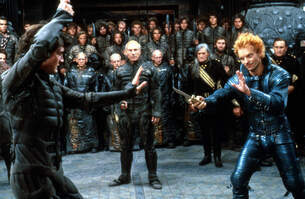
This film is an insult to the original text, its beautiful and cerebral themes, and its vast, fiercely devoted fan base. The film was too long by about two hours, and yet somehow it failed to explain properly even the most foundational concepts from the novel. Granted, the novel is dense, vast, and epic—but the movie seemed to have truly turned its nose up at the source material the way a child quits the school band when they can’t master the trumpet within a week. The ubiquitous touch of the mid-eighties didn’t help things, either. DO NOT WATCH.
The new movie is great, though. Christina's bonus: Ella Enchanted (2004)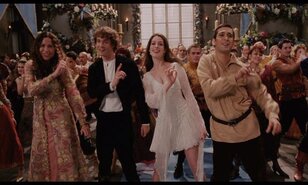
There are a couple of films out there that are terrible adaptations of their source material, but really fun in their own right. My numero uno in this category is Ella Enchanted. The book is great. The film is great. They have next to no resemblance to each other beyond some core concepts, like the main character having to obey any command and eventually falling in love (sorry, spoilers!). My brain can separate these enough to appreciate each of them without comparing them.
Mary-Peyton's fave: Anne of Green Gables (1985)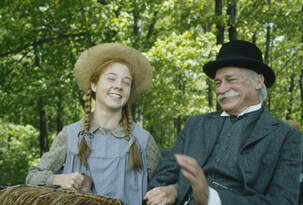
I could watch the 1985 film adaptation of this book over and over again! It really captured the heart of the book, and Megan Follows perfectly captured the wild spirit of Anne Shirley--a kind, clumsy, and stubborn girl adopted by an older couple who had wanted to adopt a boy, but ended up falling in love with the quirky redheaded bookworm. I wish every little girl could watch this movie, like I did (well, maybe not exactly like I did, since I had it on two VHS tapes). Anne didn’t fit into the small, quiet box that young ladies were meant to inhabit in her world (and still are in this world), and although people tried to shame her, she never apologized for being herself. The acting in this film was perfect, subtle, and real, and the writing kept much of the humor and heart that makes the book so wonderful. I highly recommend this for a family movie night.
Mary-Peyton's failure: The Lion, the Witch, and the Wardrobe (2005)
When I read these books as a kid, I was enchanted. The real world would melt away, and I’d find myself completely within the world of Narnia alongside Lucy, Edmund, Susan, Peter, and Aslan. So years later, when I first saw the movie trailer, I was beyond excited. But I was so disappointed in the movie. As often happens when grown-ups decide to make a popular children’s book into a movie, it had lost much of what made the story wonderful; ironically, it had lost much of its wisdom and depth. The best kids books, the classics that stay with us throughout time, deal with some really heavy and “grown-up” topics, like grief, betrayal, and loneliness, in such a way that helps kids process those things. But the movie version of such books often comes out as a shallow, cartoonish, and flashy shell of the book. Ella Enchanted, The Golden Compass, and the Percy Jackson series are great examples of this--those books are downright dark and even scary at parts, which makes the story so much more intense; the more terrible the evil, the more magical it is when good wins. Kids don’t fall in love with these magical adventures because they’re fun; they love them because they are full, deep, and emotional stories of bravery, growth, kindness, and more. The fantastical adventure is only part of the appeal. It seems like the people who made these movies missed the point.
Michael's fave: The Princess Bride (1987)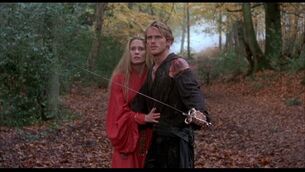
Who doesn’t love The Princess Bride film adaptation? If you don’t, I don’t want to know you. Too harsh? Maybe, but this movie is amazing! It has it all: adventure, comedy, suspense, and wuv, tru wuv. William Goldman, the author, was a huge part of the adaptation and this helped keep the movie true to the book. And with Rob Reiner directing, pure magic was made. He also directed book to movie adaptations like Stand by Me and Misery. The only bits and pieces of the book that are not found in the film were edited out simply because of time constraints. And anything added were small additions; did you know there weren’t any shrieking eels in the book? As someone who deliberately reads the book before the movie comes out so they can tell whoever will listen how much the movie failed to capture the power of the book, I’m happy to report that this is one adaptation I can do nothing but praise.
Michael's failure: Miss Peregrine's Home for Peculiar Children (2016)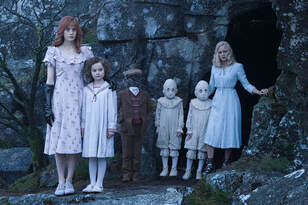
I had such high hopes for this film adaptation, especially with Tim Burton at the helm! I just knew he would be able to capture the right amount of darkness that hangs over the Peregrine universe. But . . . the movie was an utter disappointment. The author, Ransom Riggs, should have had more of an opinion during filming. Tim Burton ended up swapping the main female character’s powers for those of a weaker female character, which felt like it was just so the main male character could be more of a hero. Then, because Tim Burton wanted to work with Samuel L. Jackson so badly, he created a character and story line that isn’t found in the book. It completely changed the vibe of the first book, and the direct consequence was they couldn’t make a movie series using the other books. Maybe that was a blessing because this film was a complete letdown.
Grace's fave: Practical Magic (1998)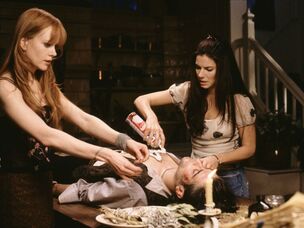
I probably watched this movie for the first time during my preteen years, so it has a special place in my heart. When I found out it was based on a book by none other than the amazing Alice Hoffman, I had to read it. Even though I really enjoyed this book, I truly think the movie is a culmination of the book’s strongest parts—and that’s not just because of the “special place in my heart” thing I mentioned. Okay, maybe a little. There are plenty of differences between the book and movie versions, and they’re both fabulous in their own ways, but I think the Practical Magic movie is an awesome example of how a film adaptation doesn’t have to be a scene-for-scene remake of the book to be good.
Grace's failure: Percy Jackson and the Olympians: The Lightning Thief (2010)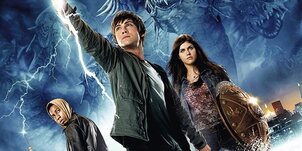
This movie adaptation is so bad that I haven’t even seen it!! I’ve heard enough to know I need to stay away, far away. I know, I probably should’ve included a movie adaptation I’ve actually seen, but the validity of our list would’ve been called into question without, so did I really have a choice? I somehow missed the Percy Jackson train when it rolled through years ago, so I’m catching up and reading them now. I’m smack-dab in the middle—ugh, maybe I’ll end up watching the movie one day. I’ll let you know if I do!
Feel free to add to our list with your favorite and least favorite book-to-film adaptations in the comments below! by Grace Ball
In this episode of How Do I Book?, host Christina Kann sits down with Anne Claessen to chat about how authors can pitch to guest on podcasts to spread their networks and sell their books! Anne Claessen is the CEO of Podcast Babes podcast management agency and host of The Podcast Babes podcast.
Please note that this transcript has been edited for clarity and concision.
Christina Kann 00:27
Welcome to How Do I Book? by Wildling Press. We like to chat about book writing, book publishing, book marketing, and, of course, book reading. We're trying to help new and experienced authors develop their craft, widen their perspectives, and learn to get a little wild every once in a while. I'm Christina Kann, and I'm extremely excited to be joined today by our first guest ever, Anne Claessen, host of The Podcast Babes. Welcome, Anne! Anne Claessen 00:55 Thank you so much, Christina. It's so good to be here. Christina Kann 00:58 Before we get started, real quick, what are your pronouns? Anne Claessen 01:02 She/her. Christina Kann 01:02 Awesome. Thank you so much, and thank you for being here. I've been a longtime listener of The Podcast Babes. I've learned so much from your show. I'm hoping that you can share a little bit with our listeners today as well. Anne Claessen 01:14 I hope so. No pressure, right? Christina Kann 01:17 Do you want to tell our listeners a little bit about The Podcast Babes and your other work? Anne Claessen 01:21 Yeah, absolutely. The Podcast Babes is a podcast about podcasting. It is also a podcast management agency. I'm gonna say "podcast" like a million times in this episode. Christina Kann 01:37 I've been listening to The Podcast Babes for a long time, and it has taught me so much about podcasting. I love how much you share parts of your own journey with your listeners. It's a wonderful podcast for anyone out there who's interested in learning more about podcasting. Anne Claessen 01:53 Thank you. Christina Kann 01:54 Thank you for sharing all of your wonderful work. Today, I want to talk specifically about authors. This is a book podcast; a lot of our listeners are authors. I want to talk about how authors can use podcasting to promote their books and make connections. Anne Claessen 02:11 Sounds good! Christina Kann 02:12 First things first: why might an author want to guest on someone else's podcast? Anne Claessen 02:18 I'm a little bit biased, but I think podcasts are awesome. Christina Kann 02:21 Same. Anne Claessen 02:22 The cool thing about podcasts is they are long form content. They are there every week -- or biweekly, or monthly or whatever -- but listeners of podcasts come back to that podcast over and over again for more content. They get to know the hosts pretty well. Christina, when we hopped on this call, you said, "Whoa, it's so weird to see you now because I always listen to your voice." As a listener, you get this feeling: "I know this person, and I trust this person." The cool thing is when you're guesting on someone's podcast, and they already have a relationship with the listener, you can really easily borrow this warm audience that is already there. As the guest, that is a pretty sweet deal. You just rock out for the interview; you're usually there for maybe 30 to 60 minutes for most interviews. Then you just go about your day, and the podcaster does all the editing and all the backend work for you. It is definitely appreciated when you help share the episode -- but that is it. Right? So you can really easily borrow someone's warm audience, and I think that makes guesting on podcasts so cool. Also, it's long form content, so you can tell people a lot about your book. Christina Kann 03:45 That's a really great point. It's a bit of a network exchange, you know? You get to go talk about yourself and your subject matter to their audience, and then in exchange, you plug their show to your audience. So it works out for everybody. Anne Claessen 04:01 Exactly. Christina Kann 04:02 Where should an author start? If they're interested in guessing on podcasts -- maybe they don't listen to a ton of podcasts, maybe they're not sure exactly what to do -- how can they find the right kinds of podcasts? Where do they begin? Anne Claessen 04:14 I think question number one is: where does your audience hang out? The people that you want to read your book, where are they? Do they even listen to podcasts? Maybe not! That's probably not a good fit. But a lot of people nowadays do listen to podcasts. Knowing your potential reader very very well is so important in marketing in general, of course, but also when you're looking for podcasts to guest on. That actually already answers your question of which podcasts to pitch to. That's literally it. Now, I will add that usually you want to provide value to listeners. It may make sense if what you talk about aligns with the rest of the podcast. If it's a podcast about topic A and you talk about topic B, it can work, but it's easier if the whole podcast is about what you also talk about in your book. So know your audience well, or the potential audience that you want to reach, and then see how you can provide value. Value first. Christina Kann 05:27 Yeah, absolutely. So maybe listen to some podcasts that are near your subject matter, and figure out, "Would the things I have to say fit in with what I'm already hearing?" Anne Claessen 05:41 Yeah, absolutely. You want it to make it a win win for everyone: for the listener, for the podcaster, for yourself. It just kind of needs to make sense. Christina Kann 05:51 Yeah, absolutely. Because otherwise, the listeners might be like, "Oh, what's this?" You know? Anne Claessen 05:56 Yeah. And they're not going to buy your book then. I mean, if it's super random, they're probably not gonna buy your book. Maybe also the episode won't perform as well as when it is a good fit. And I also think it's gonna be a lot more difficult to get invited on a podcast. Christina Kann 06:13 Yeah, that's very true. If the pitches don't make sense, they're not going to be fruitful. Anne Claessen 06:18 Yep. Christina Kann 06:19 When an author finds a podcast, and they are like, "Okay, I like this podcast, I think this is my target audience, I think I would fit in nicely." What can they do to get ready to make that pitch? What do they need to do before they send the email or the DM? How can they be most prepared for that? Anne Claessen 06:37 Know what you want to talk about. I think that is just so important. Everyone always says, listen to the podcast, research the podcast, and all that, and I don't disagree. But for me, as the person who is usually on the other side of the pitches, who just receives pitches of people who want to guest on my podcast, I love it when people are just really clear. "This is what I can talk about. This is why I think it's interesting for your audience." Maybe you even have a potential title for the episode in mind. I love that because it makes my work so much easier. Christina Kann 07:09 Well, I'm I'm sure it helps people envision it, you know? Anne Claessen 07:12 Yeah! True. I know exactly what I'm gonna say yes or no to. I know what to expect. I can really easily say, "Yes, that's a good fit for my audience." "No, that's not a good fit for my audience." I really love that. And I think a little bit of research about a podcast is also definitely something that you might want to do. If you just write me an email that says, "Hi there." Meh. That's like not usually the email I like to answer when they're just popping up in my inbox. If you say, "Hi, Anne!" then I'm like, "Okay, like this person, at least knows my name." Just the basics, you know? Just the basic stuff. I think you also don't have to listen to all the episodes, but just make sure that it is a good fit, or at least you think it's a good fit. Because if you just send out like 100 random emails, like, "Hey, I can speak about this topic," it's just a waste of your energy, and also of the energy of this person who's reading your email. So I would say, don't just send like a million emails out without really thinking about: is it actually a good fit? Christina Kann 08:19 Yeah, it's quality over quantity. If you get a couple of really good pitches out, that can be so much more valuable than sending 100 stock pitches that are all the same. Anne Claessen 08:29 A hundred percent. Yes. Christina Kann 08:31 It seems like it's kind of on par with like preparing for a job interview, you know? You want to go in making it clear that you have looked into the company, you know what you're there to talk about. You're really going in with like a goal in mind. Anne Claessen 08:45 Yeah, I think so. I mean, I'm not an expert in job interviews, but in a job interview, you also want to show what value you can bring to the company. When you're pitching podcasts, it's what value can you bring to the podcast? Christina Kann 08:58 Yeah, absolutely. With all of this information that the authors have received doing their research, how do they craft the perfect pitch? How do you write a great pitch that's going to grab the podcaster's attention and really convey the value that you hope to bring? Anne Claessen 09:14 What I really like is if the pitch is just short and sweet. I don't want to go through a really long email. It pops into my inbox, and I didn't ask for it, so you have to catch my attention immediately. The first sentence needs to be enticing, or at least like needs to say what you want from me. If it's just like, "Hey Anne, I want to come on your podcast, and I think it's a great fit, because..." then I'll probably keep reading. And also, if you say, "My name is blah, blah, blah, and I do this," that's also fine, but it needs to be really, really short because I don't want to read three paragraphs about you when I have no idea what you want from me. So you really want to keep it short. I always like it when there's bullet points or something; "These are some of the topics that I can talk about on your podcast," and then like three bullet points, maybe, or max five. Even if I scan the email, I know what you have to offer. So I think that just works really well. Yeah, I think those are my main tips: keep it short, and make sure it's easy to scan, and don't talk too much about yourself. Christina Kann 10:24 Right. I think that probably sending a really long pitch email says to the podcaster that you might come on to their show and ramble, and say words that aren't providing value. Anne Claessen 10:42 Yeah. I think also, when you talk about yourself a lot in your pitch -- I mean, yes, it is about you. But it's not really about you. It's more about the value you can bring. I don't know you, and honestly, I don't really care. I just want to provide really good value to my audience. That is why I do the podcast. Christina Kann 11:04 Right. That's who you care about. Anne Claessen 11:06 Yeah. I think it's really important to keep that in mind. Yes, I want to know a little bit of who you are, but if you just ramble on about what you do and what you accomplished -- I zone out pretty quickly when I get an email like that. Christina Kann 11:23 Yeah, it's kind of like being a salesperson. It's not really about talking about how great this item is; it's about making the customer feel like they need this item. I feel like it's kind of the same way with podcasts pitches. It's not really about you. It's about convincing the podcaster that they need you on their feed. Anne Claessen 11:43 Yeah, absolutely. Also, what a lot of people don't do after pitching is following up. If you don't get an answer -- not in three days, but -- if you don't have an answer after two weeks, then I would usually follow up and say, "Hey, maybe you missed my email," or "Also let me know if you're not interested. No worries," but at least I'll know then. A "no" is also a win, because then you know it's not a good fit, which is fine, and then you can move on. But yeah, you definitely want an answer, so usually I would follow up at least like five times, which sounds like a lot. You just really want a "yes" or "no." Maybe also people don't see the email. So usually, after following up two or three times, I would send a message on Instagram or on LinkedIn, on a different platform, because maybe it's the wrong email address. You know? Christina Kann 12:39 Maybe it's the wrong email address. Maybe it's going to the spam filter. Something like that. Technology's weird. So I think trying to hit it from a different angle through social media, DMs, or something is a really strong move. "Let me know if there's a better way to get in touch with you." Anne Claessen 12:55 Yeah, exactly. That always works really well. Christina Kann 12:59 If an author is trying to pitch to several different podcasts -- maybe they're like, "Okay, this is the the week or the month where I'm gonna do podcast pitches" -- what's a good way for them to keep track of what they're doing, who they're reaching out to, whether they hear back? Anne Claessen 13:14 I'm a spreadsheet girl. Christina Kann 13:17 Same. Anne Claessen 13:17 I have spreadsheets about everything. But definitely this. You definitely want to make sure that you know who you reached out to, where you are in the pitching process, when you want to reach out again or follow up. There is definitely a big spreadsheet involved in this work. Christina Kann 13:35 Yes, yes, absolutely. I have a spreadsheet that I just call "Potential Guests," where I keep a spreadsheet of everyone I want to come on my podcast. I have a spreadsheet of my podcast episodes and when they're coming out. That's my life tip for everyone: get a spreadsheet for everything. Anne Claessen 13:53 Absolutely. Yeah, I didn't do that when I started my first podcast, and it just got messy at one point. I had not really any idea where I was in my post production and also what episodes went live. Christina Kann 14:07 It's a lot to keep track of. Anne Claessen 14:09 Yeah, at one point, you're like 100 episodes in, and you're like, "I don't know who I spoke to." When it's like two years ago, it's becoming a problem. So yeah, definitely have spreadsheets. Another free bonus tip here: It always works really well to leverage your network that you already have. Sending cold pitches can be cool, but getting people to connect you and then sending a pitch? That works like 100 times better. Christina Kann 14:40 Yeah, absolutely. Absolutely. Definitely, no matter what kind of marketing you're doing, start with your network and your networks' networks. That's the equivalent of your first connections and your second connections on LinkedIn. If somebody can connect you to someone -- a podcaster or any other kind of blogger or social media influencer -- that can really get a foot in the door for you. Anne Claessen 15:05 Absolutely. Christina Kann 15:07 After they have sent their pitch, they're keeping track of it, maybe they followed up, maybe they've heard back no, maybe they've heard back yes. If you hear back yes, then you get to guest on a podcast, and that's really exciting! I think we'll probably need to do a second episode about that someday, because that's a whole nother can of worms: how to be a respectful and valuable guest on another person's podcast. Anne Claessen 15:33 Yeah, I think there's definitely a lot to learn if you've never done that. Yeah. I learned a lot over the past three years. Having my own podcast and guesting on other people's podcasts... There are a lot of different ways that people are guests on podcast, and some are really nice to work with, and then some people are really not that nice to work with. Christina Kann 15:55 Right. I don't know if you've had the same experience as me, but I've been podcasting for about three years now as well, and I just feel like the only way to get started in podcasting is to just start. Anne Claessen 16:06 Yeah. Christina Kann 16:07 You just have to dive right in. Anne Claessen 16:09 Yeah, just jump. See where it ends. Christina Kann 16:12 Exactly. Because if you wait for it to be perfect, if you wait to have all of the perfect equipment, if you wait to feel really good about it, you might never get started. Anne Claessen 16:23 Yeah, exactly. And as a guest, usually listeners are quite forgiving with audio quality and things like that. You don't necessarily need a mic, I think, when you're casting for podcasts. It also might depend on how big the podcast is. For my podcast, I don't require guests to have a mic. If the audio is really bad, I'm gonna say like, "Sorry, but this is impossible. We're not going to do this." But if it's okay, if you just have headphones and probably not your computer mic, but an okay mic, that is already fine as a guest. That's probably what you can get away with. You don't need the whole setup if you're going to start pitching. Christina Kann 17:10 Most of my guests that come on my podcasts who are not professional podcasters, I'm like, "Honestly, if you just pull up the voice memos on your phone and keep it close to your face, that'll be totally good enough." But you would want to speak to each individual podcaster to see if they have different requirements. But I think you're right, that a lot of people are really forgiving with the audio quality of guests, especially those guests who are not podcasters. Why would they have all of this stuff set up if they're not even a podcaster? Anne Claessen 17:38 Yep! Christina Kann 17:38 Is there anything else that you want authors to know about looking for podcasts that guest on and pitching to those podcasts? Anne Claessen 17:45 it can be a little bit of work to find a podcast, craft a pitch, and things like that, but at one point, you just have some pitches out and you have to follow up. You just have to do this research maybe once or every now and then, but it gets easier. Yes, it is a bit of a time investment. But you'll figure it out as you keep pitching and you keep getting answers and yeses and noes, and you can tweak the pitch as you go. That is also a reason why I wouldn't send out 100 pitches at the same time, because you want to tweak your pitch as you go. And also, this never happens, but if you got 100 yeses, then you have a problem. Christina Kann 18:31 Wow. Yeah! How do you book that? Anne Claessen 18:35 Yes. Yeah. Christina Kann 18:36 That's terrifying, actually. Anne Claessen 18:39 Yeah, I had someone on my team at The Podcast Babes. She pitches me to be a guest on podcasts. She has gotten so good at it that I had to ask her to stop because they couldn't fit it on my calendar anymore, which is a really good problem to have. Be mindful that you don't over pitch because it would also be annoying for the podcaster. Maybe when you pitch, they say yes, and then you're like, "Okay, cool. I'm available in four months." Christina Kann 19:05 Right! I think maybe like if you keep your open pitches to like as many interviews as you could do within a month or something, so you don't get too ahead of yourself. Awesome. Well, Anne, thank you so much for coming on the show. I so appreciate you sharing your expertise with our listeners. Anne Claessen 19:23 Yeah, thank you for having me. It was so exciting to be on. I didn't even know that I was the first guest, so I feel really special. Christina Kann 19:29 We're pretty new. We're only about two months into the podcast. So we're starting our guest phase. So everyone get ready for some other cool new guests in the future. And yeah, Anne, thanks for being our first. Anne Claessen 19:42 Yeah, thanks. Christina Kann 19:44 Where can people find you on the internet? Where can they catch your podcast? Where would you like for them to connect with you? Anne Claessen 19:50 Yeah, come to my home on the internet, www.thepodcastbabes.com. Christina Kann 19:55 A beautiful website, by the way. Anne Claessen 19:56 Oh, thank you! You can find everything there. You can find The Podcast Babes podcast. You can find more of what we do what we offer. We also offer podcast guest pitching services. So that is pitching you to be the guest, not to get guests but to be the guest, which can be a little bit confusing. But we can also do that for you. Like I said, it is a bit of a time investment doing all the research and getting the pitch right and everything. If you if you want to just show up for the interview and just tell your story and talk about your book and not worry about all the research and you don't have time for that, then we can do that for you. Let me know if that is something you're interested in. You can find my email address and also a link to book a discovery call on the website.
A lot of new authors, when asked for their Facebook link, send us a link to their personal Facebook profile. What we’re looking for, and what we encourage all of our authors to develop, is a professional Facebook page. Pay careful attention to the language here -- for the purposes of this blog post, we will refer to personal Facebook profiles as “profiles” and professional Facebook pages (also known as “business pages”) as “pages.”
Sure, you already have a personal Facebook profile, so why add something else onto your plate? The answer to this question is that profiles and pages are not the same. They do not serve the same purpose, and you cannot simply trade out one for another. Let’s take a closer look at the differences between the two.
A personal Facebook profile is a great place to let your own personal audience, your friends and family, know that you have a book coming out. If you’re on Facebook personally, we certainly recommend making use of this audience. But profiles are not appropriate for professional, public author use.
For starters, unless your personal profile is “public,” your fans won’t be able to find you! The purpose of developing a Facebook presence as an author is so you can connect with fans and keep them updated about news and events. Even if your profile is “public” and fans can find you, you don’t want this kind of connection with strangers. When you accept a friend request on your personal profile, you become friends with that person in return. That means you’ll see their photos and updates in your feed, even if you have no idea who they are. They’ll also be able to see personal information that you have listed on your profile, like where you went to high school and who you’re dating -- details you may not want all your fans to know! If you have a professional Facebook page, fans can “follow” you -- meaning, they will see the updates you post on your page, but nothing you post on your profile. You will also not see any of their updates unless they directly interact with one of your posts. This is a much more appropriate creator-fan relationship. Fans aren’t your friends, lovely though they may be, and having this boundary will benefit your personal life and your professional life at the same time. You also cannot use your personal profile when collaborating with event venues, reviewers, or your publisher. For example, if we were to post on Facebook about one of our books, we couldn’t tag that author’s personal profile in our public post, because we are running a business page. If you were doing a book signing at Barnes and Noble, they could not tag you in their social media marketing efforts for that event. If a reviewer reviewed your book, they could not tag you in that review. It could lead to you missing some updates or even missing out on fans who would have followed you, if only they could! Worse, someone might choose not to collaborate with you if you’re not on social media. If a reviewer posts their reviews primarily on Facebook, and you are not on Facebook, what good does that do either of you? Even if they read the book and publish the review, they’re not getting anything out of that exchange, because they aren’t getting exposed to your audience; you’re only getting exposed to their audience. That’s not a fair trade, and lots of reviewers would pass on that sort of one-sided transaction. Furthermore, if people are searching on Facebook for “fantasy authors” or authors of your genre, you will not show up in their search if you’re only using a personal Facebook profile. In order for Facebook to categorize you in this way, you need to create a professional page and select the correct category for yourself -- in this instance, “author.” Another benefit to having a professional Facebook page you use publicly for author purposes is that you’ll look like you know what you’re doing. If someone asks for your Facebook page in a professional setting and you send them your personal profile link, it will look like you don’t understand how Facebook works, and that would affect that person’s perception of you and your capabilities as an author. Every creator these days needs to be dedicated to learning about social media -- always learning, no matter how much you know now, because social media is always changing. The bottom line is, your fans will expect to be able to find you in certain places. Just like they’ll expect your book to be available on Amazon and Barnes and Noble, they’ll expect you to have a website. They’ll expect you to be on Facebook, and possibly even Twitter or Instagram. If they can’t find you in these places, you will likely lose out on that connection, which could mean losing out on future sales or collaborations. Do yourself and your book a favor, and set up your professional Facebook page now. by Christina Kann |
How Do I Book?We'll try to find the answer to that question in our blog. Archives
August 2023
Categories
All
|

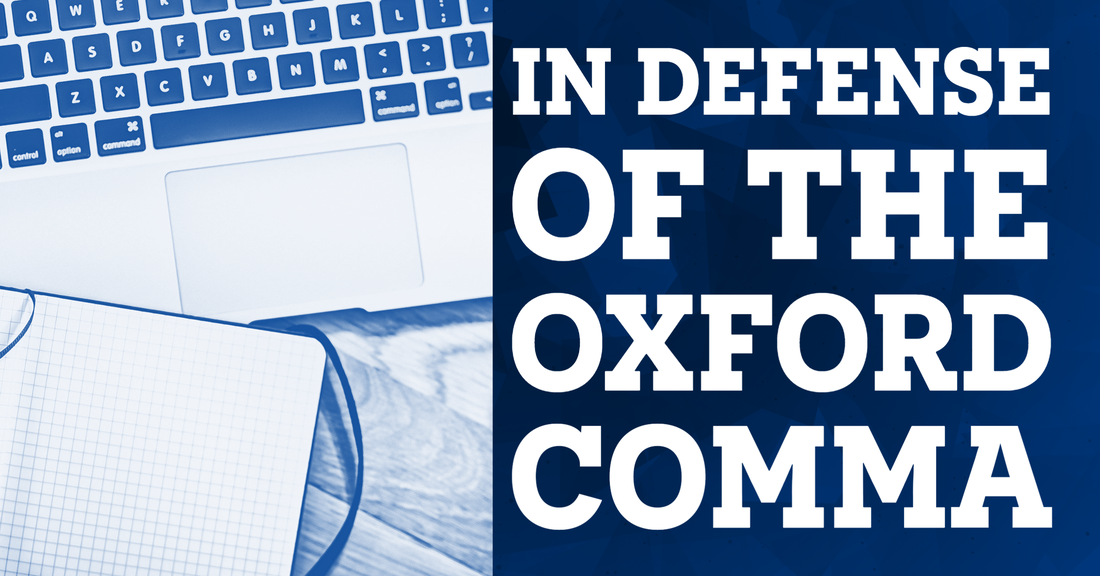
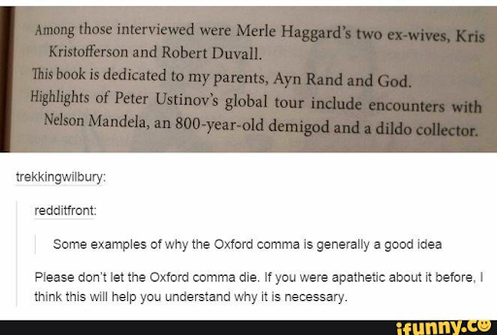
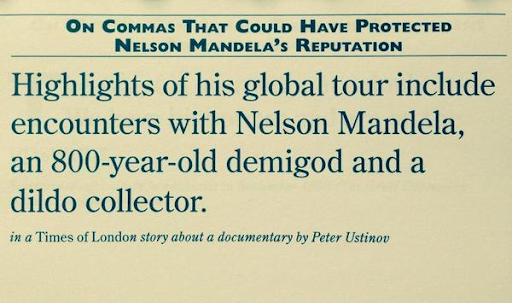
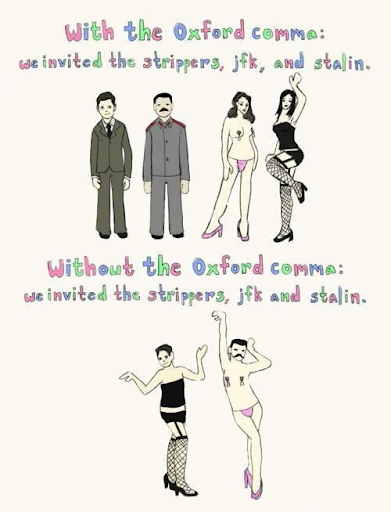
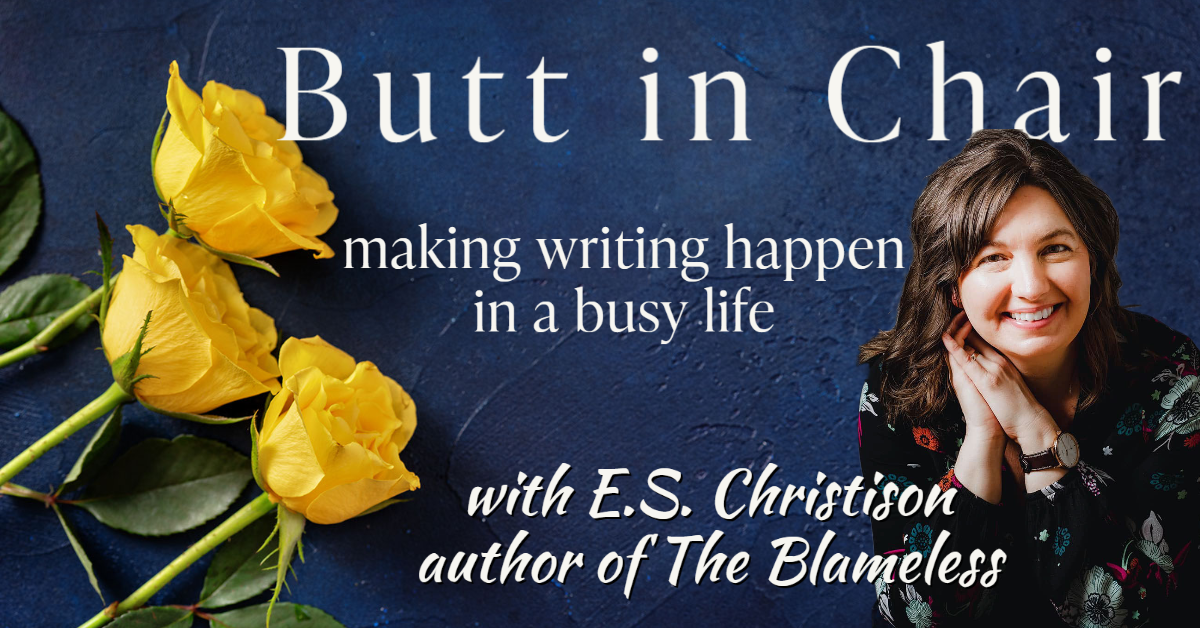
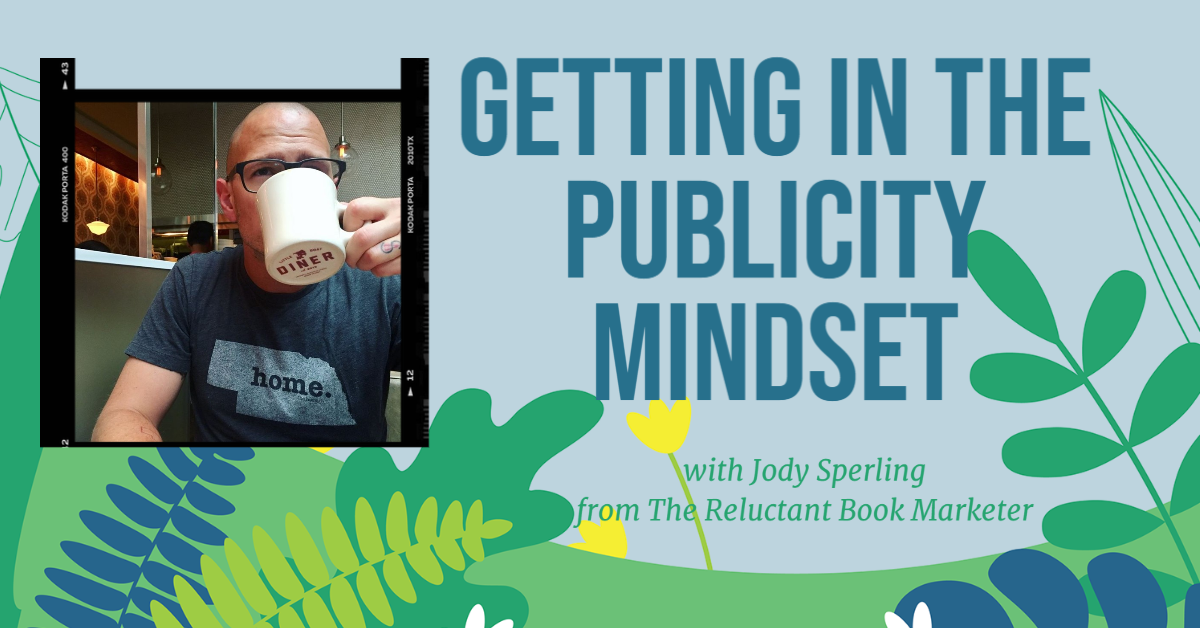
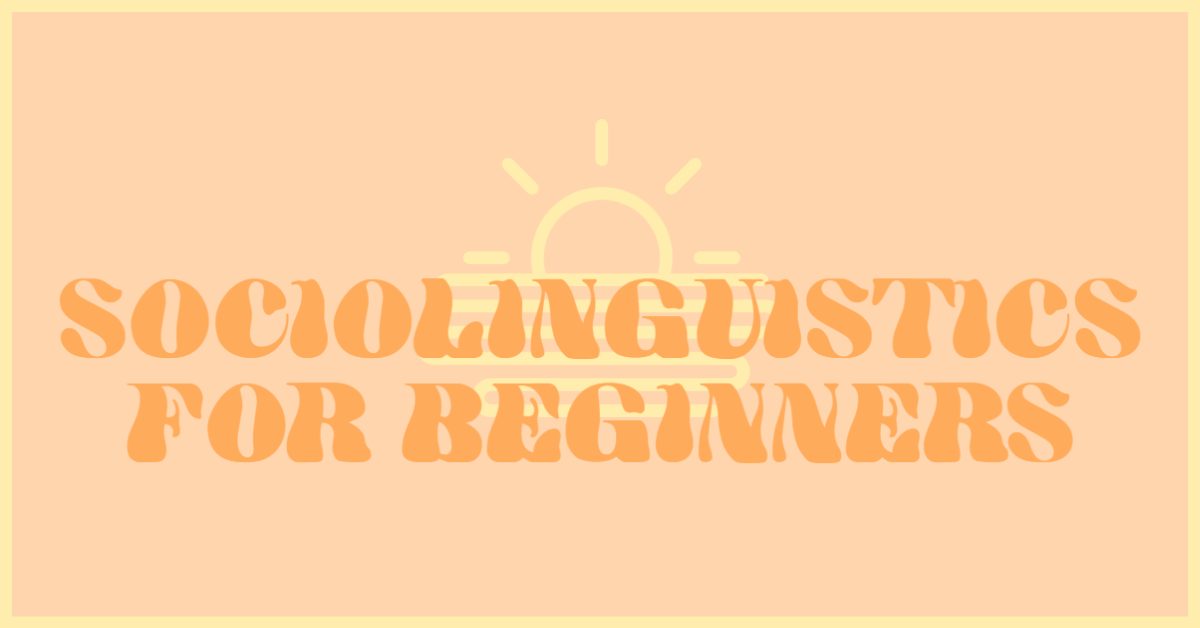
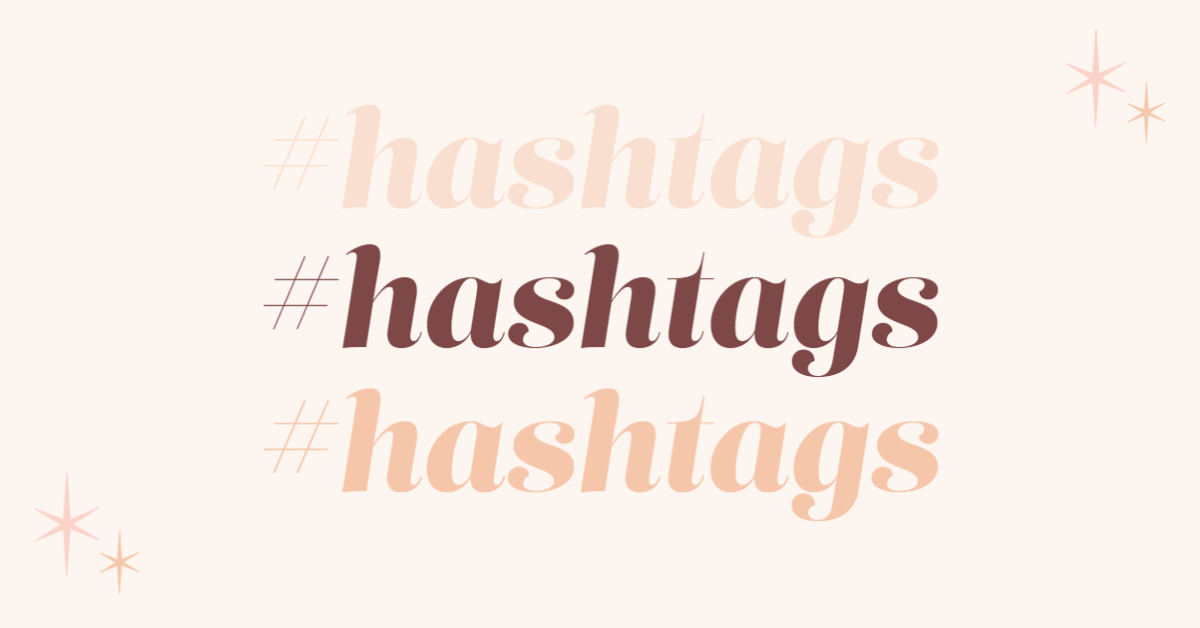
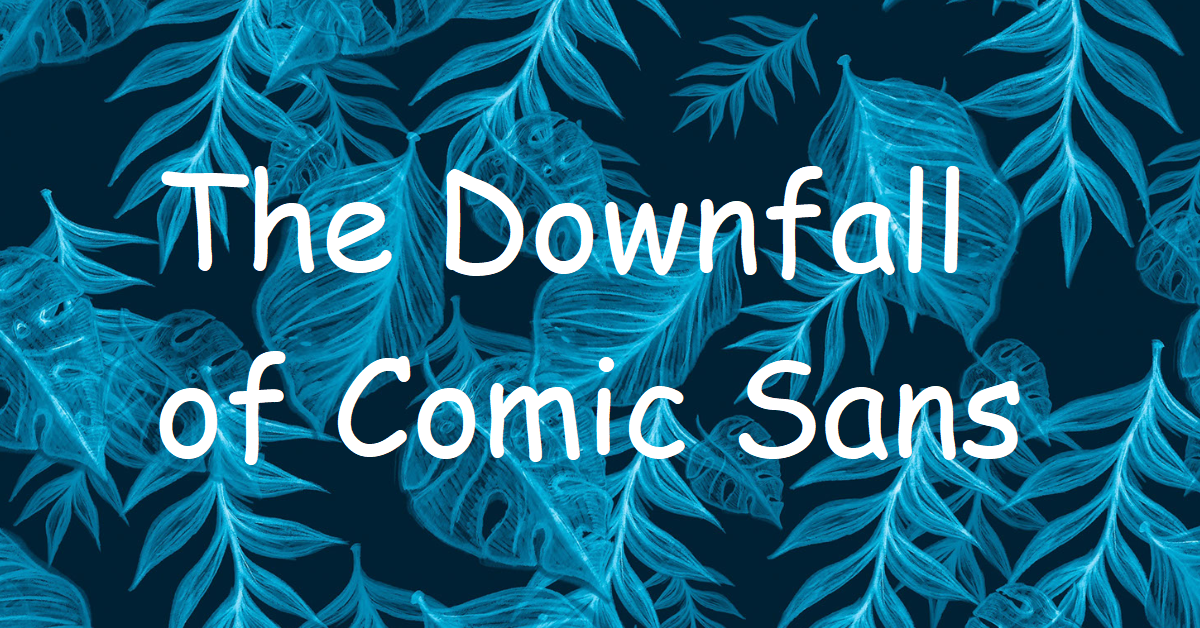
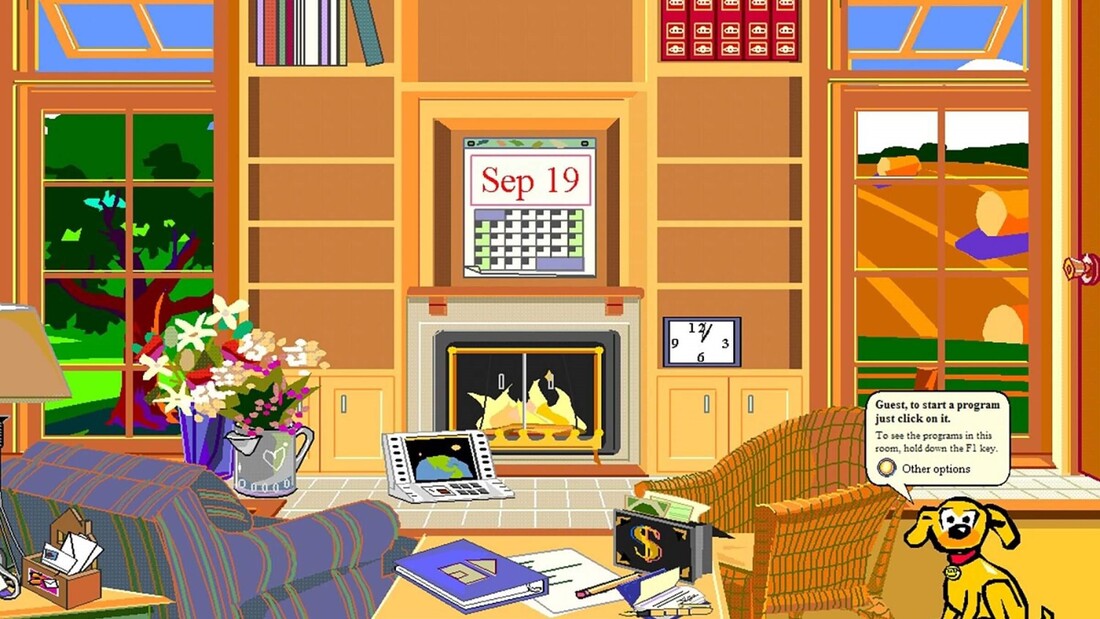
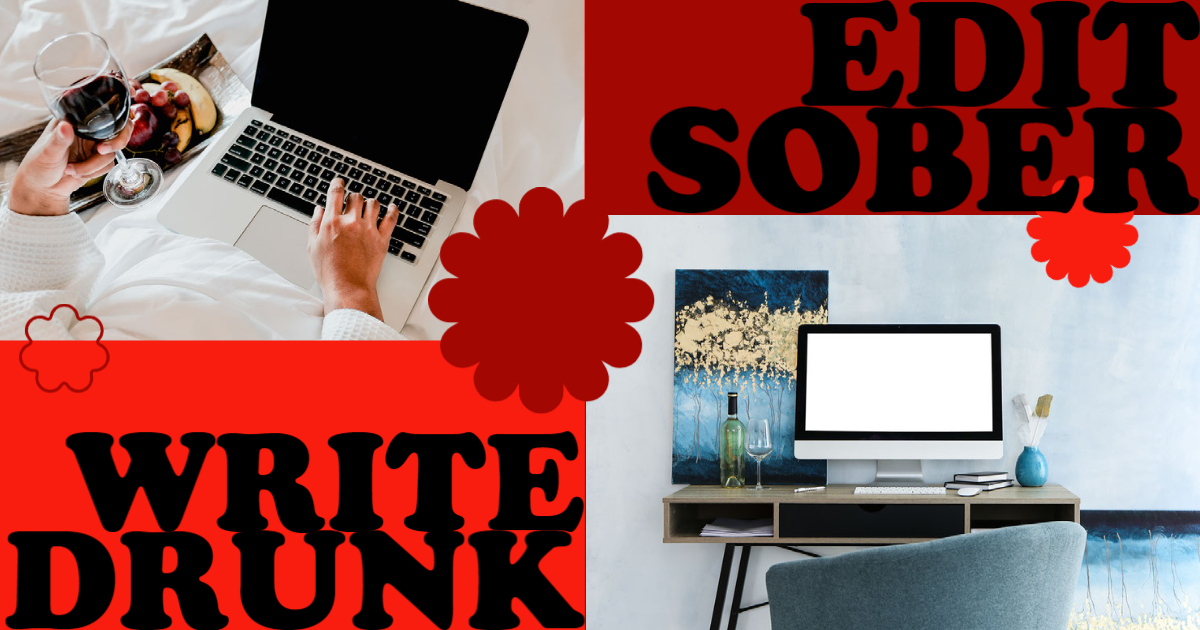
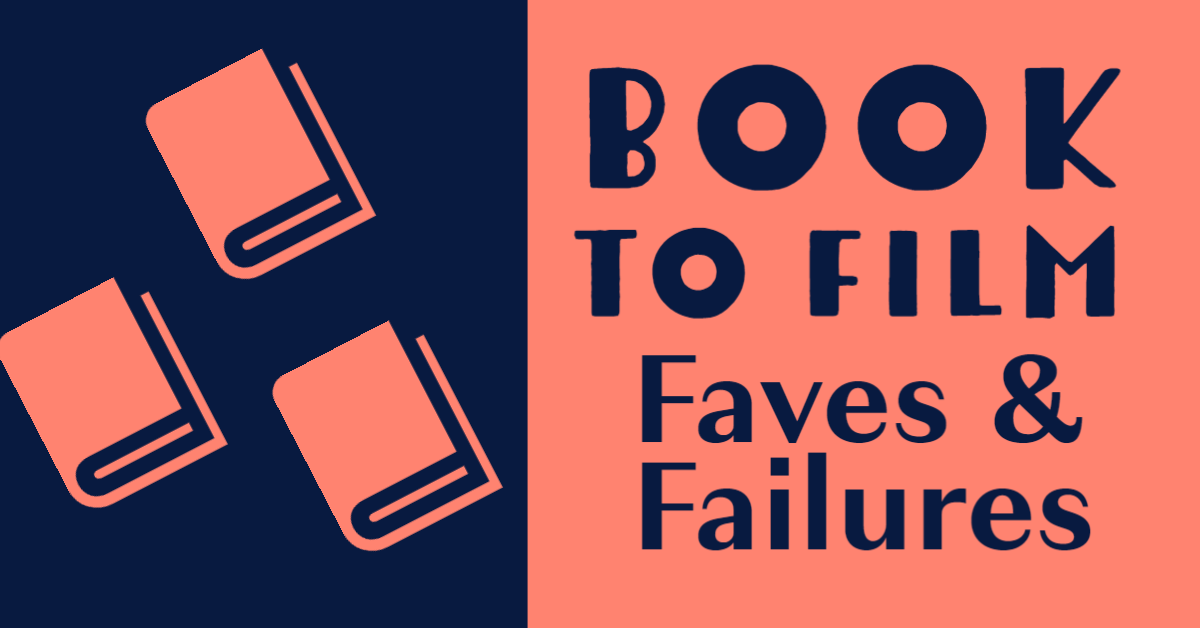
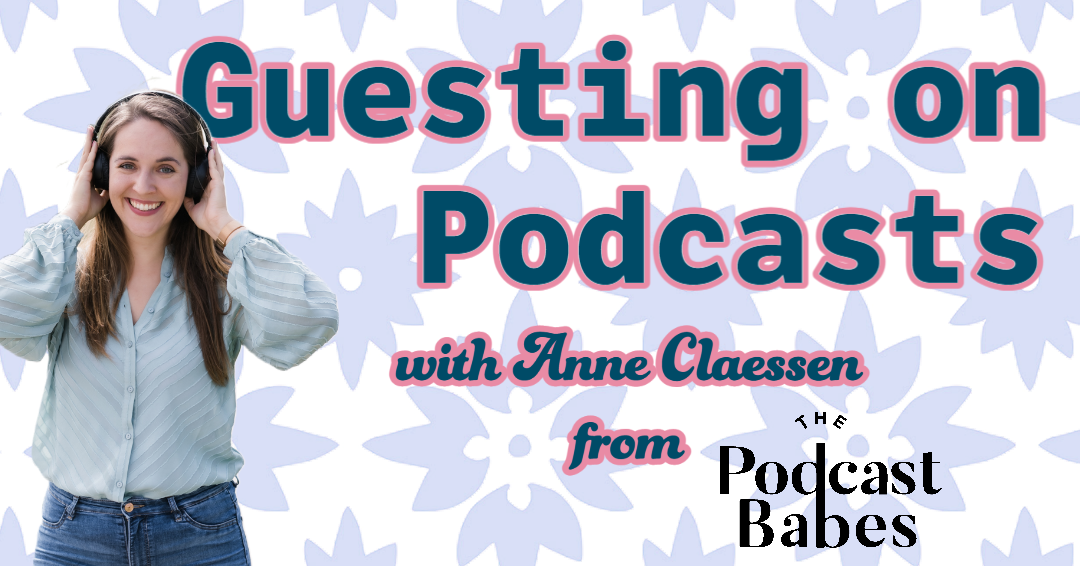
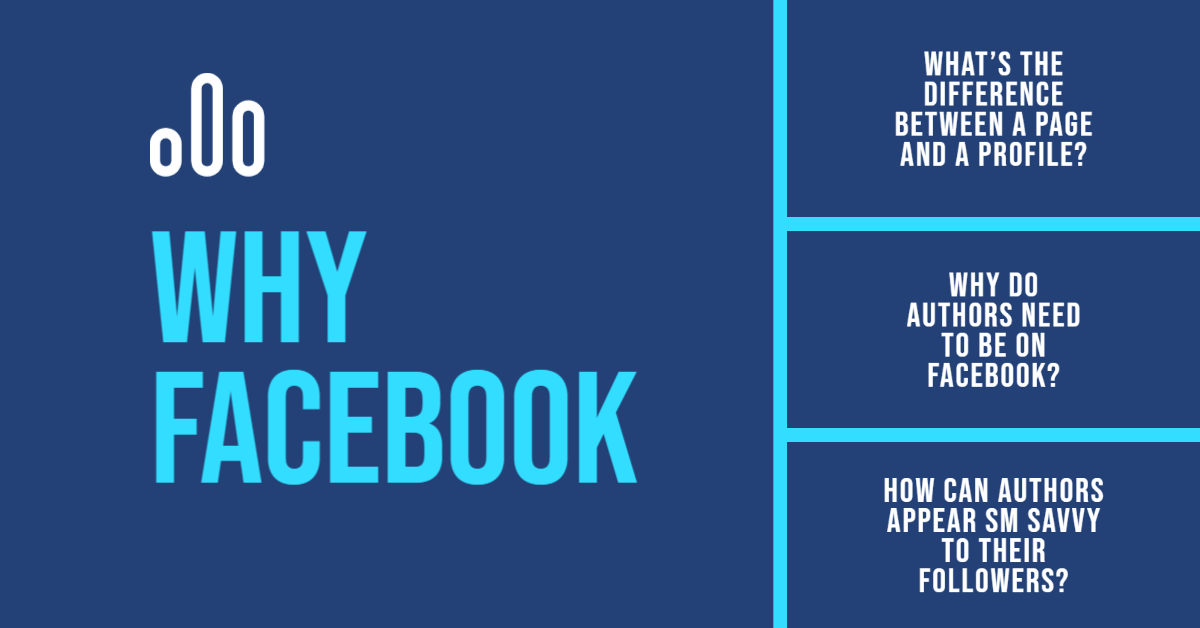
 RSS Feed
RSS Feed